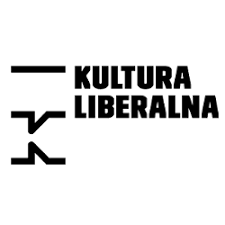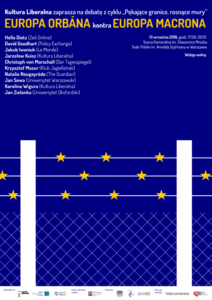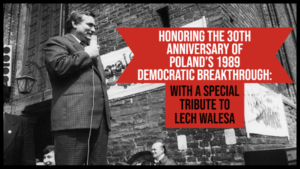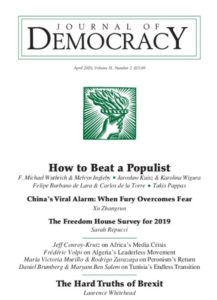 Amid the turmoil and fear caused by the COVID-19 pandemic, Central and Eastern European populists are wasting no time sowing division and attempting to cement their positions. Hungarian Prime Minister Viktor Orban seized on the crisis to claim extraordinary powers, according to Karolina Wigura and Jarosław Kuisz, political editor and editor-in-chief, respectively, of the Polish weekly Kultural Liberalna.
Amid the turmoil and fear caused by the COVID-19 pandemic, Central and Eastern European populists are wasting no time sowing division and attempting to cement their positions. Hungarian Prime Minister Viktor Orban seized on the crisis to claim extraordinary powers, according to Karolina Wigura and Jarosław Kuisz, political editor and editor-in-chief, respectively, of the Polish weekly Kultural Liberalna.
Poland’s ruling Law and Justice (PiS) party has been making arbitrary decisions on things essential for a democratic system: first insisting on keeping the date of the May presidential election despite the pandemic to choke off the opposition’s ability to challenge the ruling party and then abruptly canceling the vote just four days before it was to take place, they write for Foreign Policy:
In these and similar efforts, populists are returning to a familiar playbook: While stirring resentments, they create a dominant narrative wherein they are the only answer for protecting the people and righting past grievances. In 2015, PiS won the parliamentary and presidential elections with the slogan “Poland in ruins.” Similar rhetoric brought a string of victories to populists in other Central and Eastern European countries.
 Poland’s ruling party has been at odds with democratic norms and with the EU since long before COVID-19 appeared, notes Yale University Associate Professor Marta Figlerowicz:
Poland’s ruling party has been at odds with democratic norms and with the EU since long before COVID-19 appeared, notes Yale University Associate Professor Marta Figlerowicz:
During the pandemic, even preexisting tensions have come to a head. The PiS has tried for several years, for instance, to replace Supreme Court judges who don’t agree with the party’s political views. Brussels officially condemned these efforts in late 2019. But when the Venice Commission sent a delegation to Warsaw to discuss the situation in mid-January 2020, the Polish government refused to see it. Now, the EU is threatening to bring the matter before its supreme judicial body, the European Court of Justice in Luxembourg.
This informal leadership and bypassing of democratic institutions has been a feature of Polish politics since PiS came to power in 2015. It relates to wider concerns about the state of democracy and the rule of law in the country, says analyst Annabelle Chapman. In its latest Nations in Transit report, published last week, the US think tank Freedom House downgraded Poland from a “consolidated democracy” to a “semi-consolidated democracy”, due to the government’s attacks on judicial independence. (Hungary’s decline has been even worse: Freedom House now calls it a “hybrid regime”,) she writes for the New Statesman.
“Elections should be safe, free, and fair at all times, including during a deadly pandemic,” said Lydia Gall, senior Balkan and Eastern European Union researcher at Human Rights Watch. PiS’s proposals to rush through the election “dangerously undermine the integrity of Poland’s democracy,” she added.
 For older Poles, the political maneuvering amid a national lockdown has a peculiar resonance. They recall the months-long martial law that Poland’s declining Communist Party imposed in the early 1980s. And although the comparison is in many ways overdrawn, the frequency with which it is voiced speaks to the Polish public’s sense of the historic weight of the present moment, Figlerowicz writes for Foreign Affairs.
For older Poles, the political maneuvering amid a national lockdown has a peculiar resonance. They recall the months-long martial law that Poland’s declining Communist Party imposed in the early 1980s. And although the comparison is in many ways overdrawn, the frequency with which it is voiced speaks to the Polish public’s sense of the historic weight of the present moment, Figlerowicz writes for Foreign Affairs.
Though Eastern Europe’s populist politicians are clearly invoking artificial, idealized versions of the past, they appeal to real emotions and longings. Wigura and Kuisz add:
Populist politics translates the vague emotion of loss into more concrete feelings, among them an aversion to strangers, the desire to protect one’s home and family, and so forth…Understanding the feeling of loss that underlies populism’s effectiveness will enable
liberals to better chart their own course. They should engage with that emotion and
translate it into feelings that will offer an uplifting and positive message for
communities and constituents.
 The article draws on their contribution to the latest issue of the National Endowment for Democracy’s Journal of Democracy, which includes a special section on The Pushback Against Populism.
The article draws on their contribution to the latest issue of the National Endowment for Democracy’s Journal of Democracy, which includes a special section on The Pushback Against Populism.
A grim narrative of the years since 1989 has buoyed Eastern and Central Europe’s populist parties in their rise to power. To win back voters, liberals must tell a more compelling story of the postcommunist era—and offer a stronger vision of the years to come, Kuisz and Wigura observe in Reclaiming the Politics of Emotion.
The spectre of a sanitary cataclysm effectively pushes democracy to the sidelines, say two prominent analysts. In those countries where respect for democracy has been established over many years, it does not have to be dangerous. But things look different in places where illiberal populists have already started to translate the 2020 health emergency as the victory of the nation-state over a helpless EU, and the liberal rules-based multilateral order, Wigura and Kuisz write for the Guardian.







